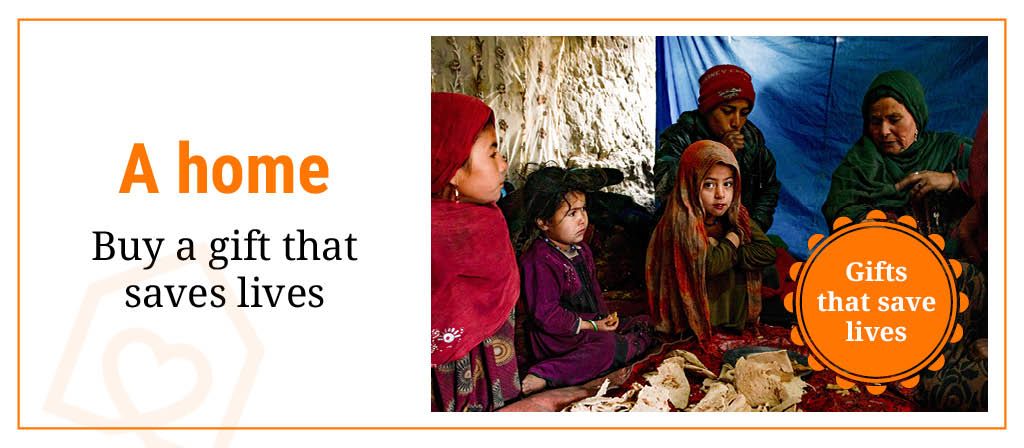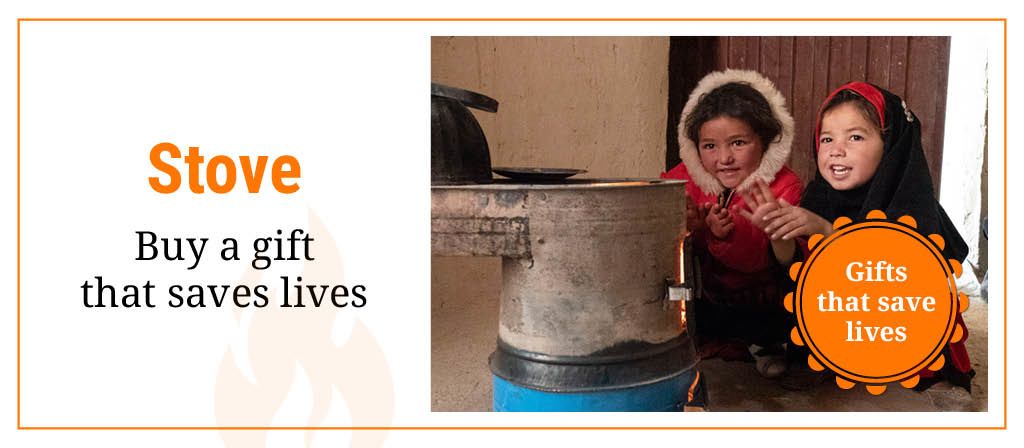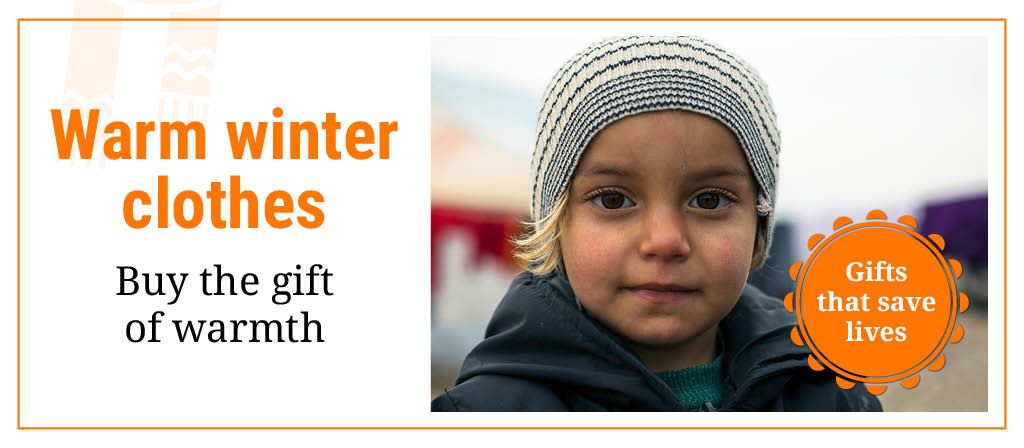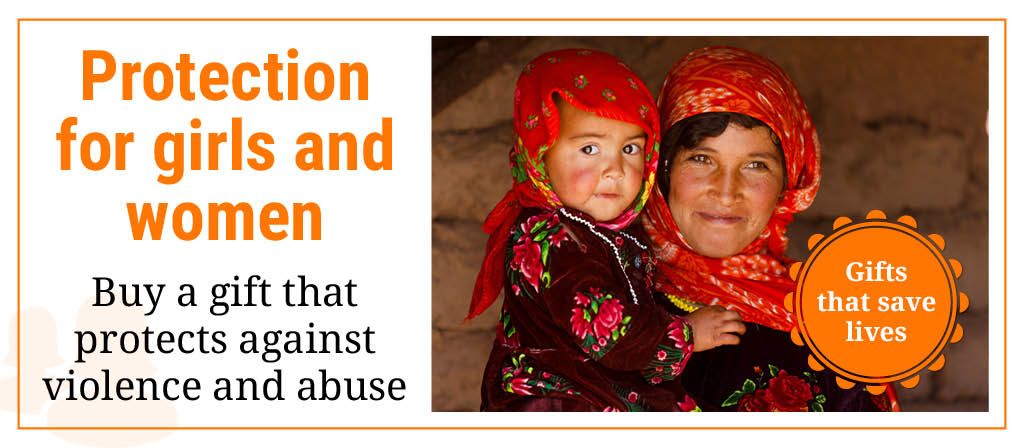How we provide
displaced people with
a place to call home

When families are forced to flee, they need immediate help to find somewhere to live that protects them against rain, snow, cold and scorching sun. But there is also a need for lasting solutions that provide security and hope for the future.
When crises occur, the Norwegian Refugee Council (NRC) provides emergency shelter for displaced people by setting up tents and organising camps. But living in a camp is not a sustainable or long-term solution – something the residents of the Moria camp on the Greek island of Lesvos know through painful experience. That’s why we work hard to find lasting solutions.
For €40, you can help give a displaced family a temporary home until it is safe for them to return to their own home.
For €40, you can help give a displaced family a temporary home until it is safe for them to return to their own home.
Six ways we save lives and build new homes
#1
We work in camps
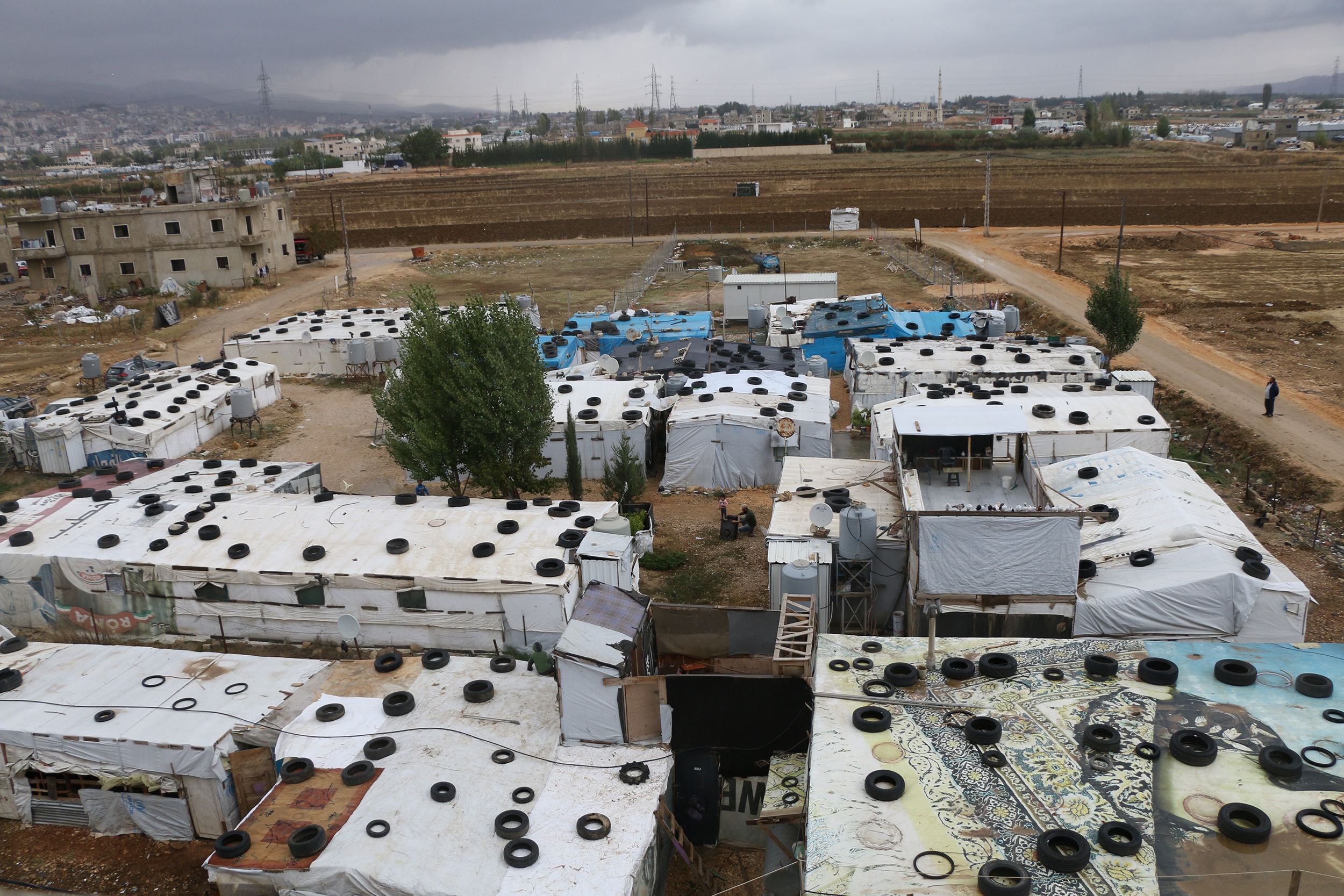
Families who have been forced to flee often seek protection in reception centres and camps. In these settings, we work in partnership with local and national authorities, other aid organisations, and the refugees themselves.
Together, we protect people’s rights and ensure that everyone gets a roof over their heads, clean water and education opportunities. We place great emphasis on displaced people being given the chance to help themselves – and on supporting them so they can lead their lives with dignity.
“I want to change things so that if I look around, I don’t think ‘this wall is very depressing’. This plant pot, for example: it’s very simple, but when I look at it, I feel happier.”
Lebanon/Bekaa Valley
If anyone can make a shelter into a home, it’s Fatima Toumas. Despite missing her original home in Syria deeply, she does everything she can to bring colour and warmth into the tent her family shares.
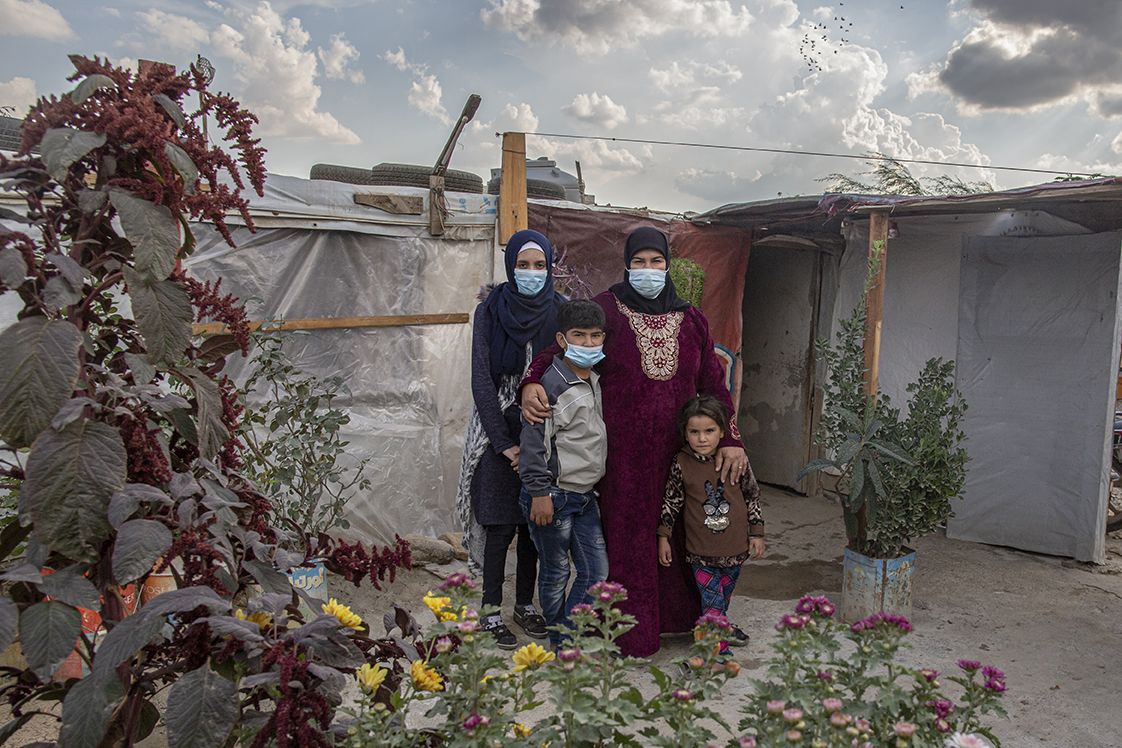
Fatima stands outside her home with her daughter-in-law (left), son Rifai, 9, and granddaughter Mel El Sham, 5. She has planted flowers to brighten up the small garden. Photo: Sam Tarling/NRC
“I want to change things so that if I look around, I don’t think ‘this wall is very depressing’. This plant pot, for example: it’s very simple, but when I look at it, I feel happier.”
Using material supplied by the Norwegian Refugee Council (NRC), the family has now been able to double the size of their home. NRC has also provided toilets in Fatima’s settlement, water for drinking and washing, hygiene kits, and waterproofing materials in preparation for the winter storms.

Fatima stands outside her home with her daughter-in-law (left), son Rifai, 9, and granddaughter Mel El Sham, 5. She has planted flowers to brighten up the small garden. Photo: Sam Tarling/NRC
Fatima stands outside her home with her daughter-in-law (left), son Rifai, 9, and granddaughter Mel El Sham, 5. She has planted flowers to brighten up the small garden. Photo: Sam Tarling/NRC
Six ways we save lives and build new homes
#2
We provide heaters, firewood and winter clothes
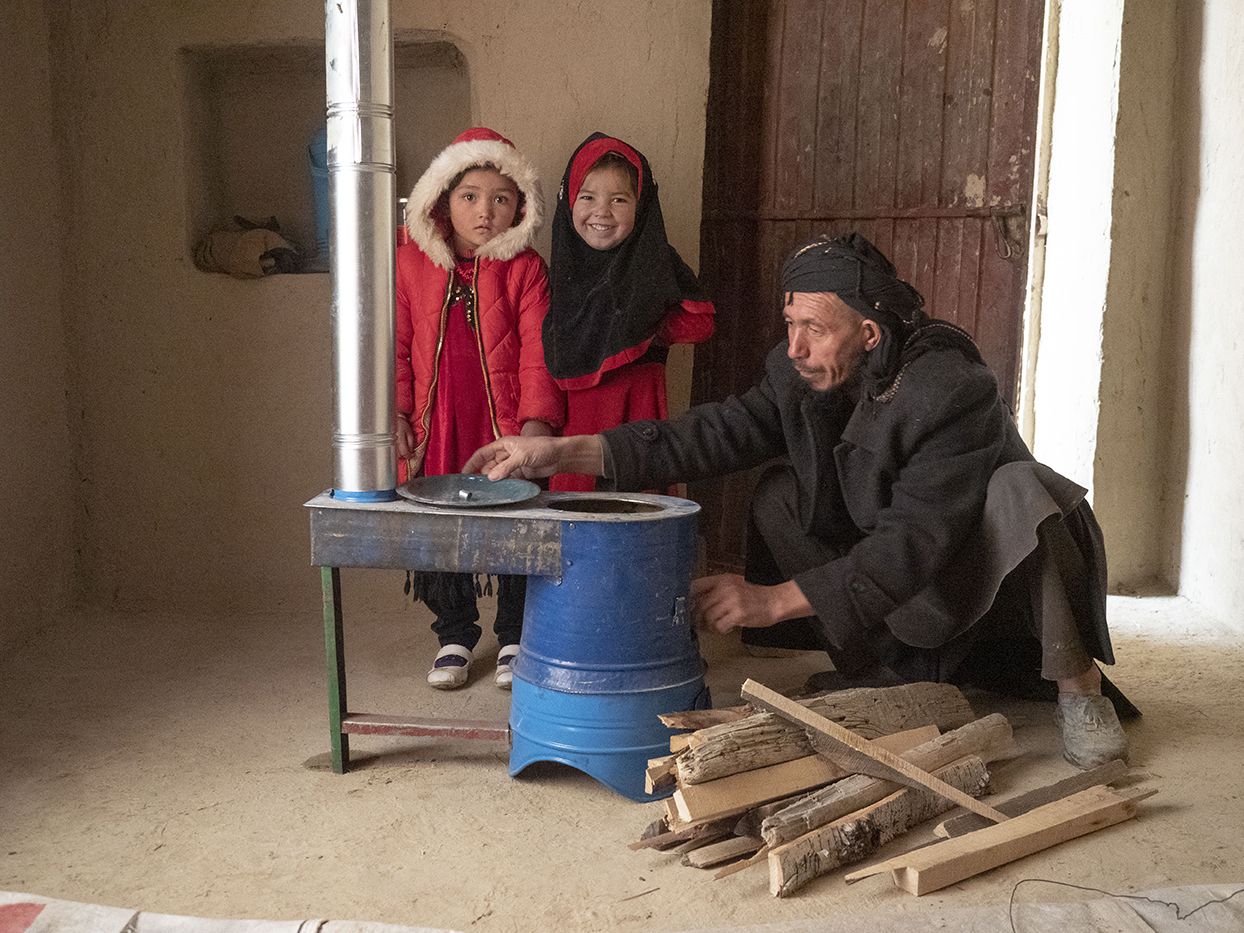
In addition to giving families a roof over their heads, we provide financial support to enable them to buy their own winter clothes, heaters and firewood. The winters in countries like Lebanon and Afghanistan can be cold and brutal, and we constantly receive reports of children dying of cold and illness.
“At first, we lived in a tent. Then we had the chance to buy a small piece of land. We spent last winter in an earthen hut in the corner of the lot. The children fell ill, and we had no money for medicine. I was afraid my children would die.”
Afghanistan
Along with about 570 other families forced to flee by violence, Ewaz, his wife and six daughters have sought refuge five kilometres north of the town of Mazar-i-Sharif.
The children have felt the cold in their bones for a long time. Last winter, with money from NRC, the family finally managed to finish their roof and install a door and window in their small house. They also received 15,700 afghani, equivalent to around USD 200, to buy a heating stove and some firewood.
“With a stove and fuel, we will make it through the winter. I built this house with my own two hands,” says Ewaz proudly.
Read more about how Ewaz and his family received a heating stove .
Six ways we save lives and build new homes
#3
We work in
urban areas
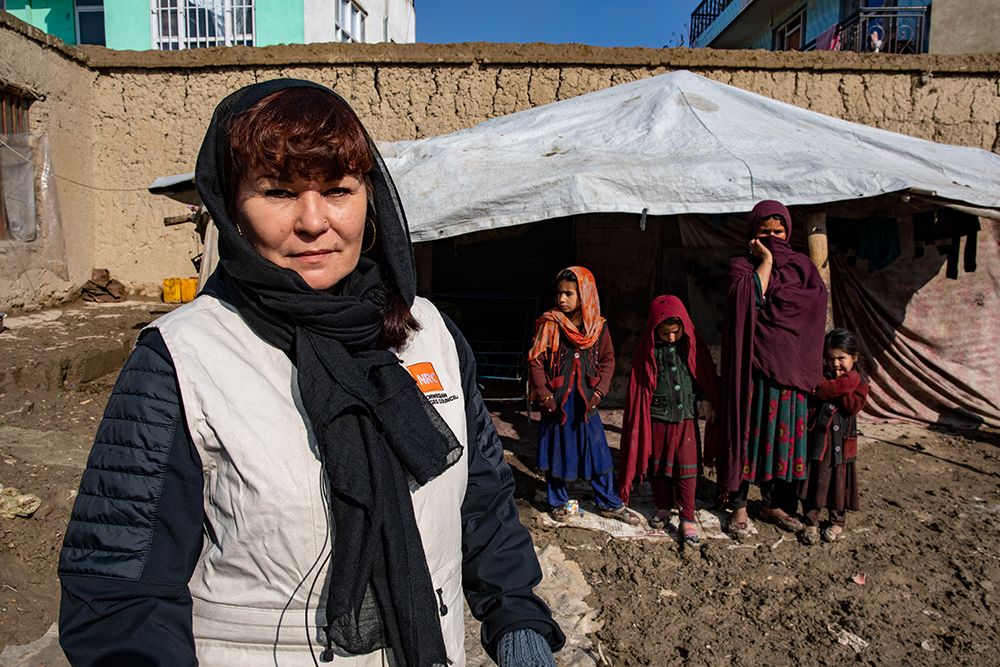
Families who have sought refuge in big cities are often called the forgotten refugees. More than half of the world’s displaced people live in urban areas where they seek protection and where it is easier to find paid work. In Afghanistan, more than 1.2 million people live in such settlements.
We have mobile teams that visit displaced families who have set up tents or built simple shelters in or near to major cities. These settlements are often not approved by the authorities or landowners.
Just as we do in established camps, we work in these areas to safeguard people’s rights and ensure they receive humanitarian aid and education opportunities.
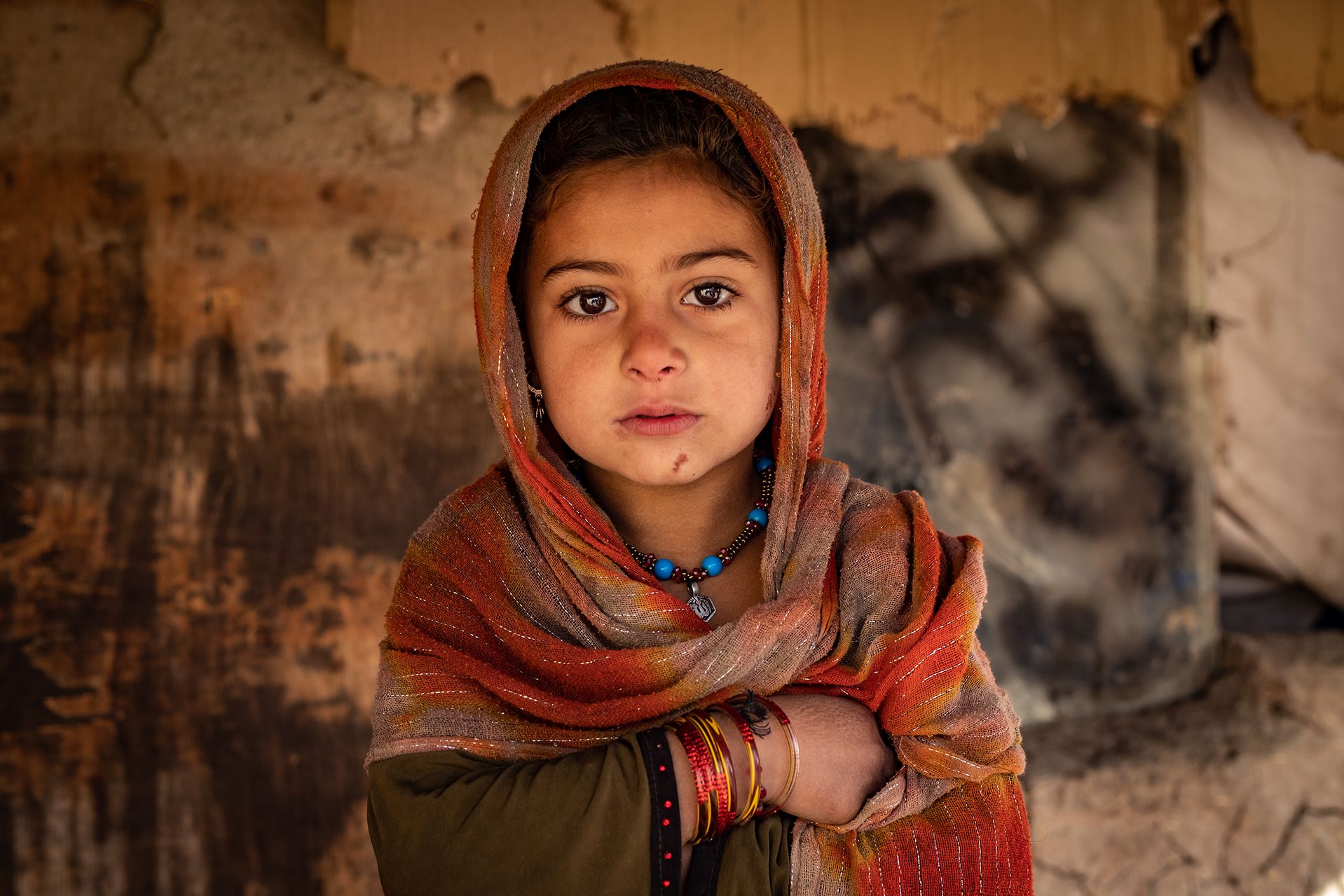
Amina, 7, and her family are bracing themselves for a cold winter. Photo: Enayatullah Azad/NRC
“It’s very cold, but we don’t have money to buy warm clothes.”
Afghanistan/Kabul
Amina wraps her thin shawl tighter around her small body. Two bare feet protrude from under her simple cotton dress.
Her home consists only of a simple plastic tarpaulin for a roof, some blankets for walls and a plastic mat that covers the earth floor. This is how she has lived half of her short life.
“Last year, we received several reports that children had died of hypothermia or pneumonia,” says Astrid Sletten, who leads NRC’s work in Afghanistan.
“Now our colleagues are fighting a battle against the clock to help as many families as possible get a roof over their heads before the full force of winter is upon them. Amina and her family have been dreading another cold winter in the tent, but are among those who are now receiving help,”
Astrid explains that she and her colleagues will be helping 1,500 of the most vulnerable families in Kabul with shelter and warm winter clothes.
Read more about how Amina and her family are receiving help.

Amina, 7, and her family are bracing themselves for a cold winter. Photo: Enayatullah Azad/NRC
Amina, 7, and her family are bracing themselves for a cold winter. Photo: Enayatullah Azad/NRC
Six ways we save lives and build new homes
#4
We build new homes
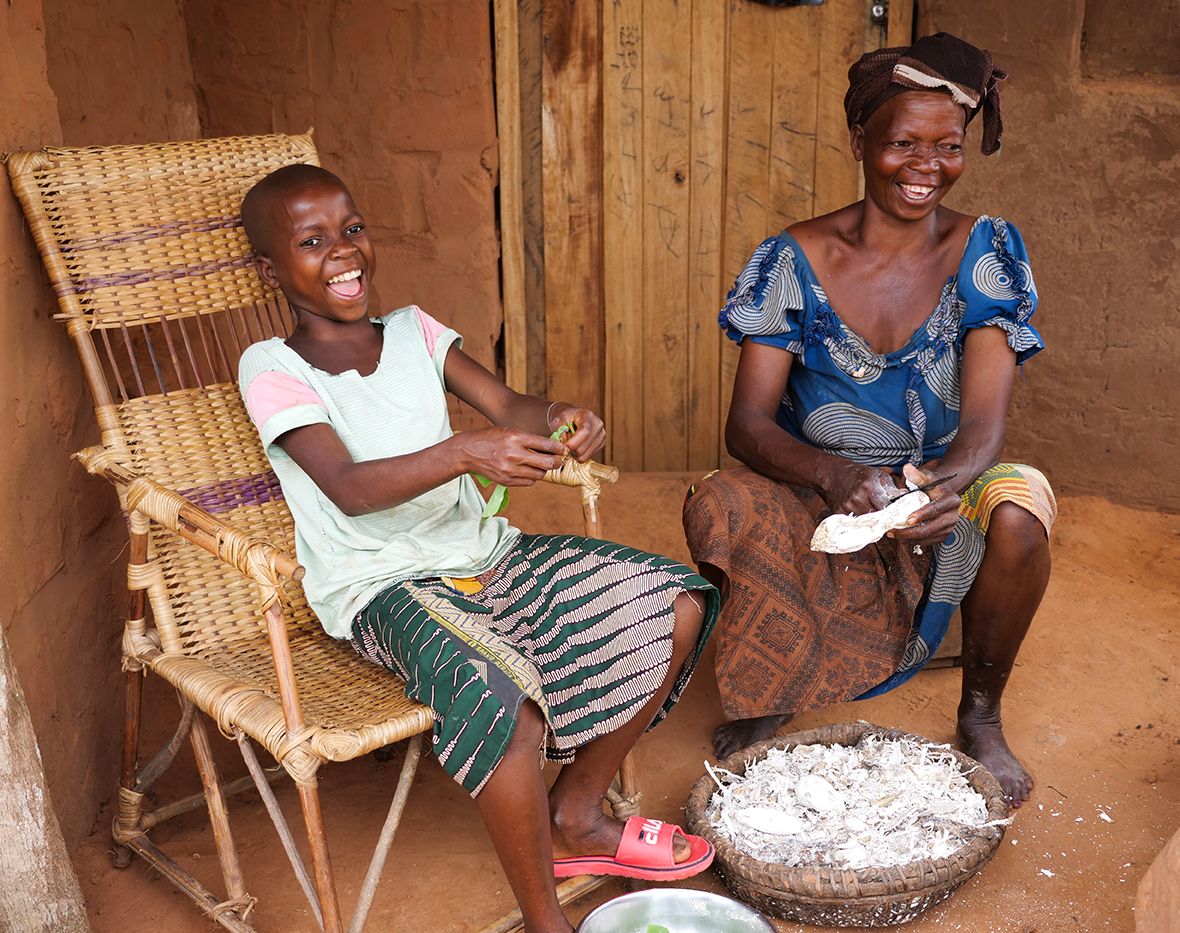
Setting up and running refugee camps is an emergency fix. This is why we work with displaced people themselves, the local community and local and national authorities to find more lasting solutions.
This could mean help for people to build new houses in the place they have fled to, or help for them to return home and rebuild their old houses.
“This house makes me proud. Especially compared to how we lived before. I never imagined we would be able to live in a house like this.”
DR Congo/Kasaï-Central Province
When armed men attacked and burnt down their village, Monique, her husband and ten children fled for their lives. After being displaced for more than three years, they are now back in their home village.
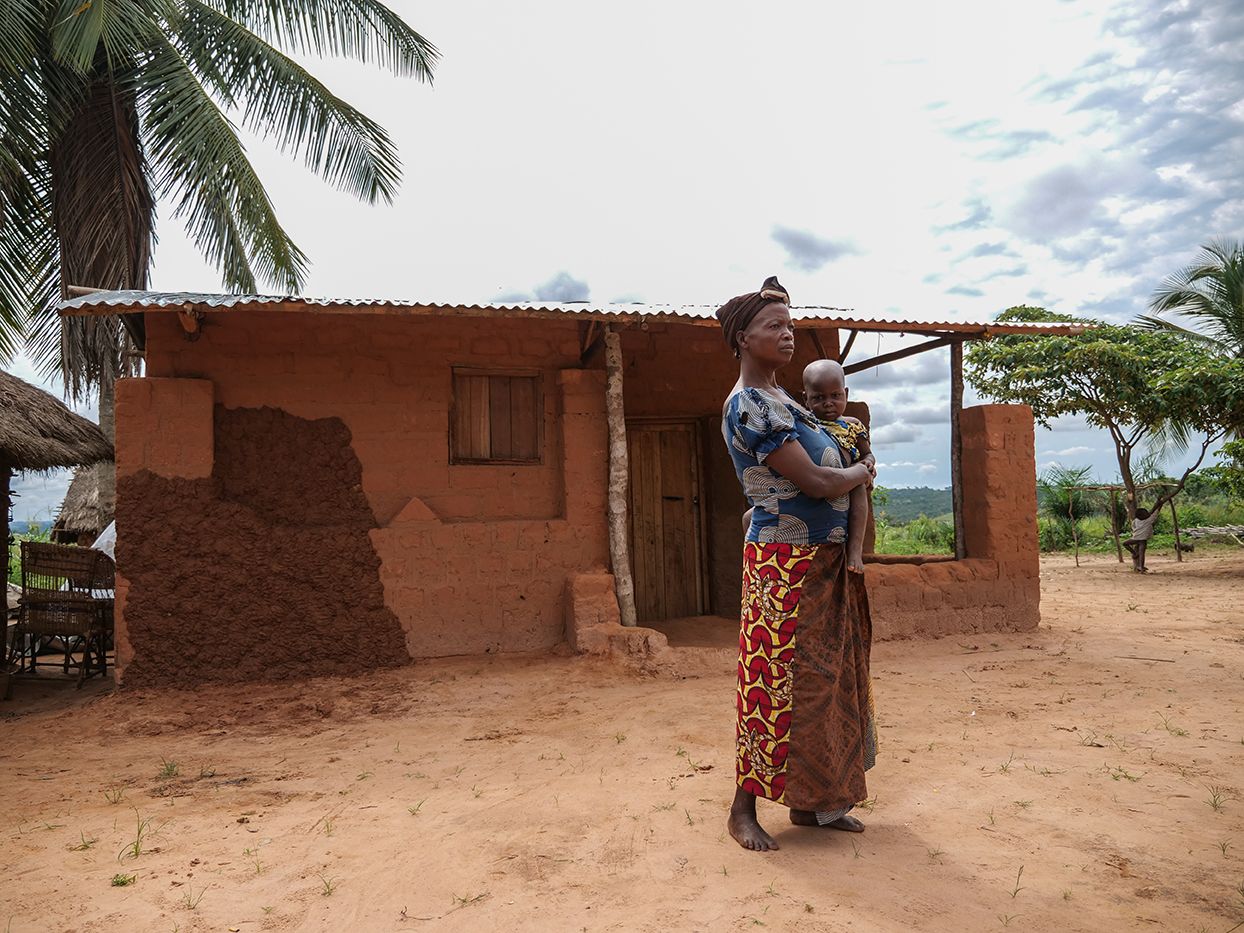
Photo: Itunu Kuku/NRC
NRC has provided assistance to some of the most vulnerable of those who returned home. We have given them money so they can build new houses.
Monique and her family are among those who have benefitted. Together with 1,600 other families across 40 villages, she and her family received a sum equivalent to around USD 90. With this money, she was able to start building a new home for herself and her children.
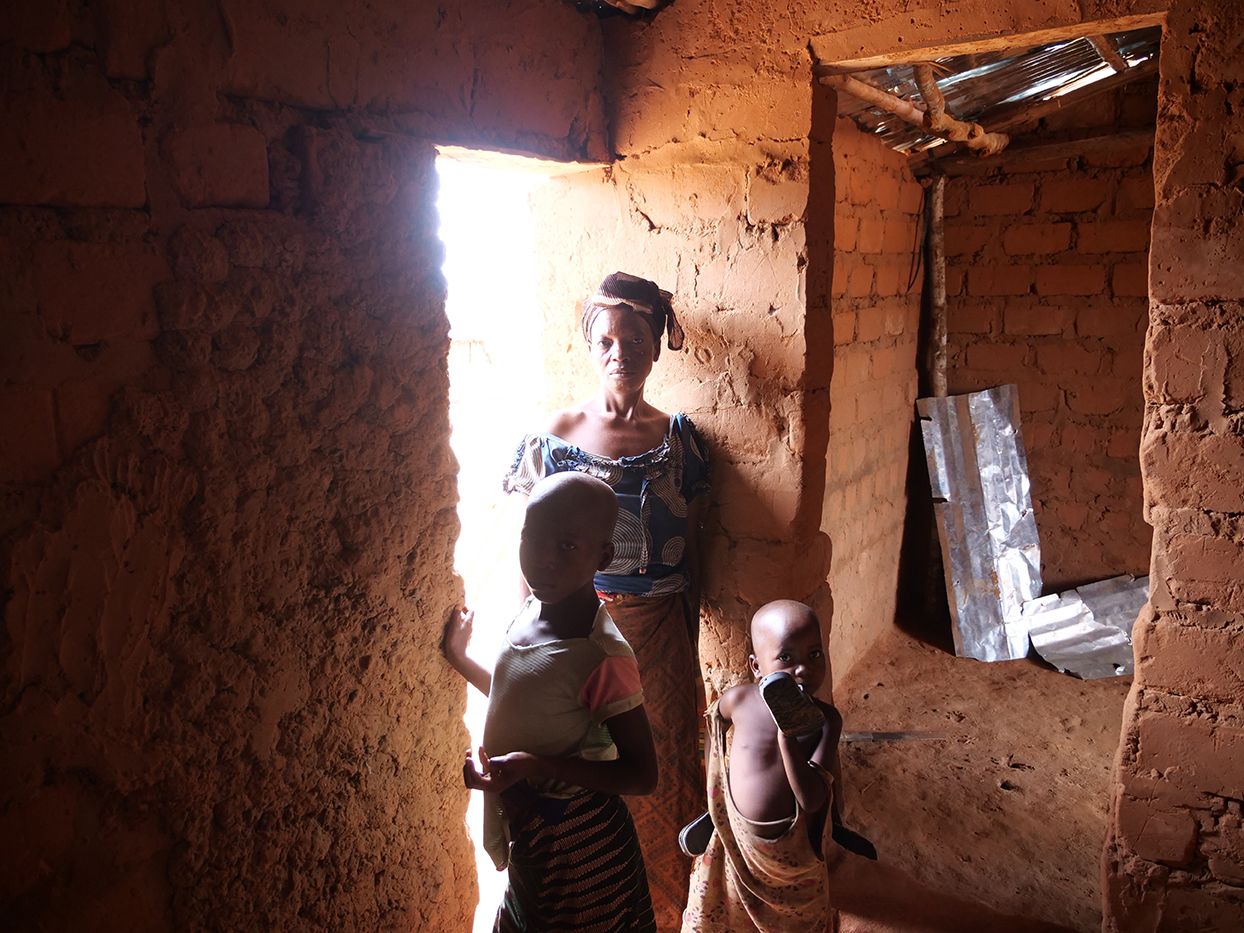
Photo: Itunu Kuku/NRC
“This house makes me proud. Especially compared to how we lived before. I never imagined we would be able to live in a house like this,” says Monique.

Photo: Itunu Kuku/NRC
Photo: Itunu Kuku/NRC

Photo: Itunu Kuku/NRC
Photo: Itunu Kuku/NRC
Six ways we save lives and build new homes
#5
We safeguard women’s property rights
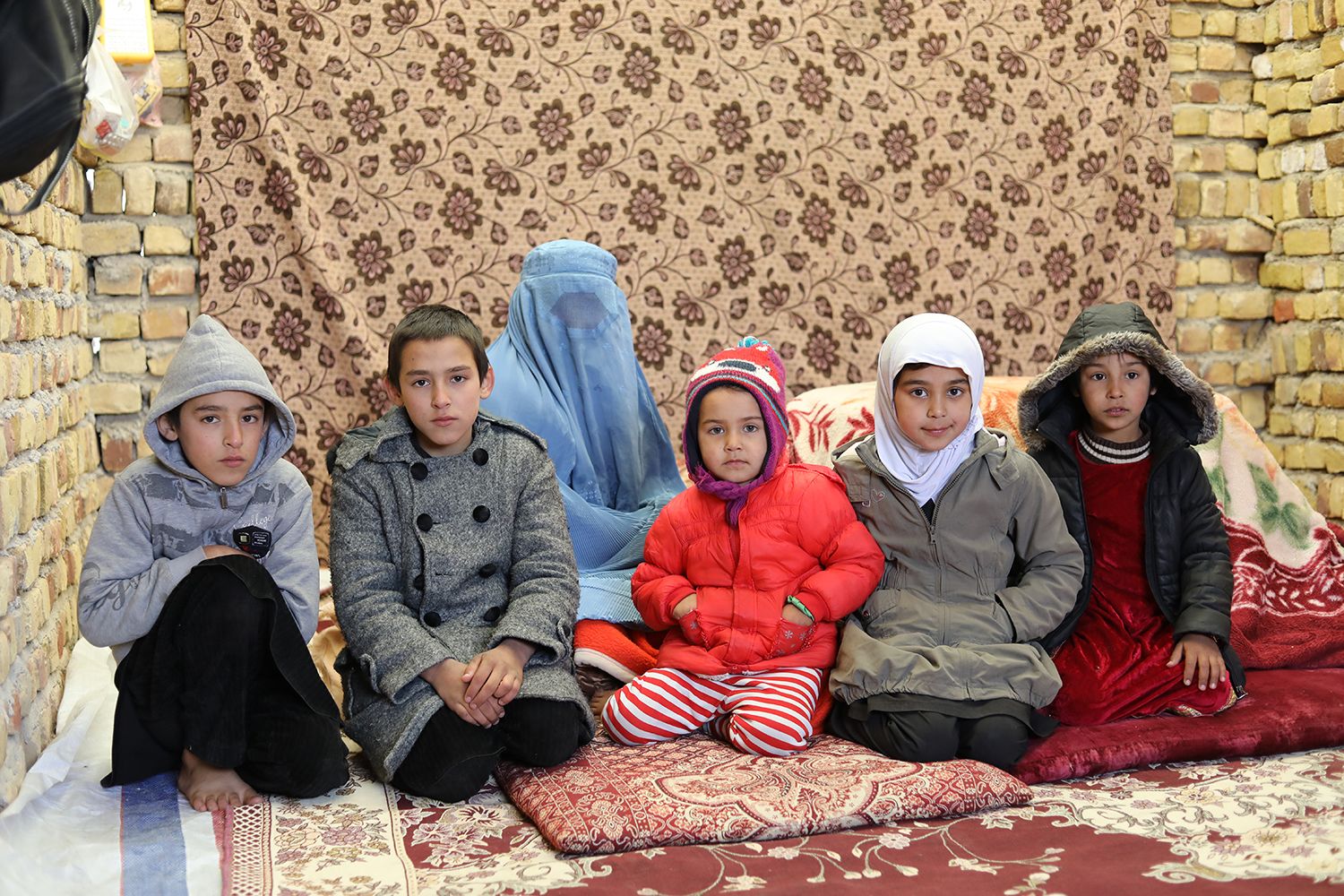
In some countries, ownership of houses and land is largely reserved for men, both according to tradition and by law. Rights are often linked to inheritance and marriage.
In conflict-stricken countries, these differences can be exacerbated. Women, especially widows, who have been forced to flee their homes often find that their houses and property have been taken over by their husband’s relatives when they return.
They risk living at the mercy of these relatives or being driven from their own homes. They also face bureaucratic obstacles and problems in obtaining the necessary documentation. NRC provides assistance so that these women can exercise the rights that they are entitled to .
“Thanks to NRC, I have now secured the rights to my property. When the zoning plans are finished, I will also receive a deed showing that I am the rightful owner.”
Afghanistan
Fatima, 30, and her five children are displaced within Afghanistan. She lost her husband to a landmine several years ago, and encountered major obstacles as she tried to establish ownership of the family’s property on the outskirts of the provincial capital, Meymaneh. Finally, she visited NRC’s office in the city.
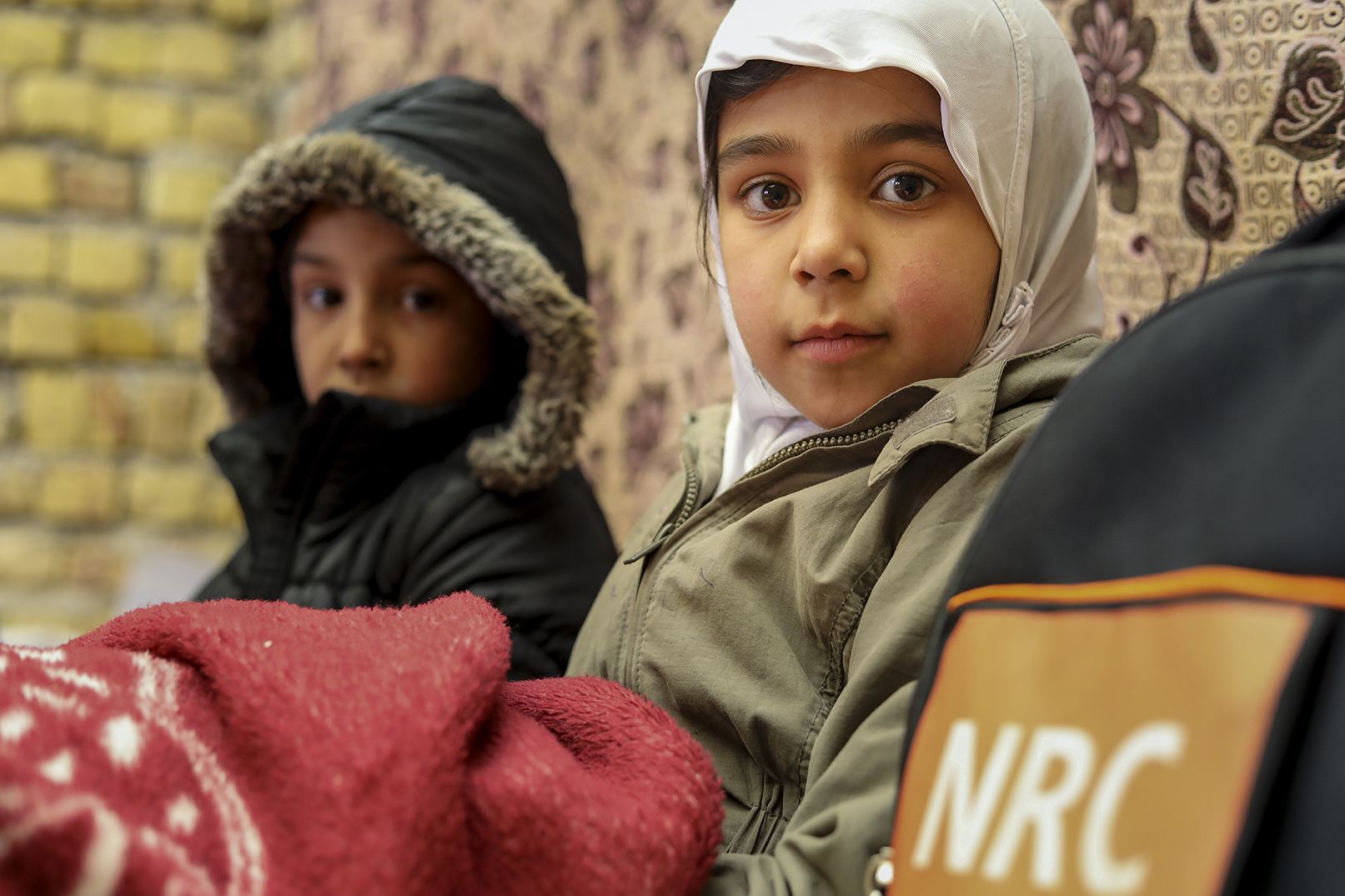
Photo: Azad Enayatullah/NRC
“They helped me,” she says. “I have now secured the rights to my property. When the zoning plans are finished, I will also receive a deed showing that I am the rightful owner.”

Photo: Azad Enayatullah/NRC
Photo: Azad Enayatullah/NRC
Six ways we save lives and build new homes
#6
We are helping during the coronavirus crisis
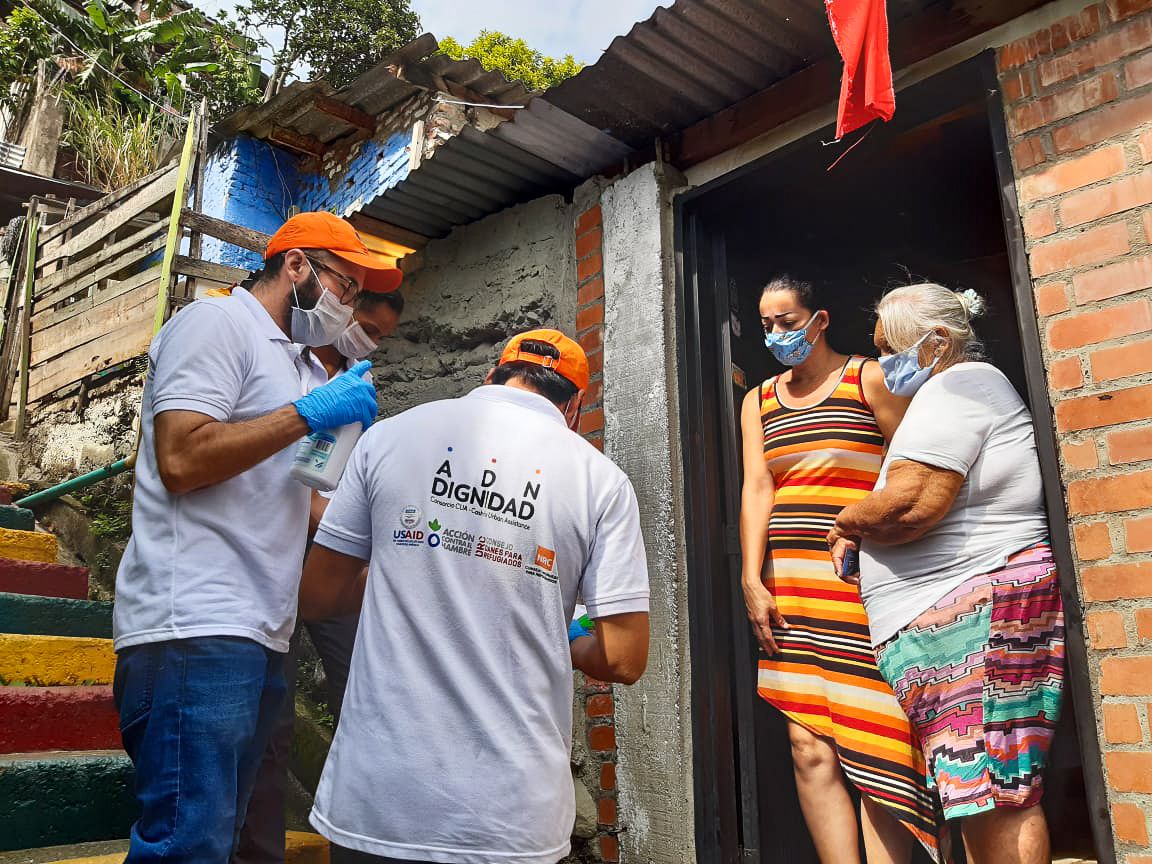
The coronavirus crisis has had the biggest effect on those who had little before. A recent report from NRC showed that three out of four refugees and internally displaced people had lost all or part of their income since the coronavirus crisis hit in March.
This has led to many people struggling to pay their rent, or being forced to move. Many have also been forced to return home. We provide financial support to displaced families so that they can cope with daily life – a life that has become significantly more difficult because of Covid-19.
“When I lost my job in my home country, we travelled here to find a job and a better future. Now, during the pandemic, I don’t even have money for soap to wash my hands. And if I’m lucky, I can give my children one meal a day.”
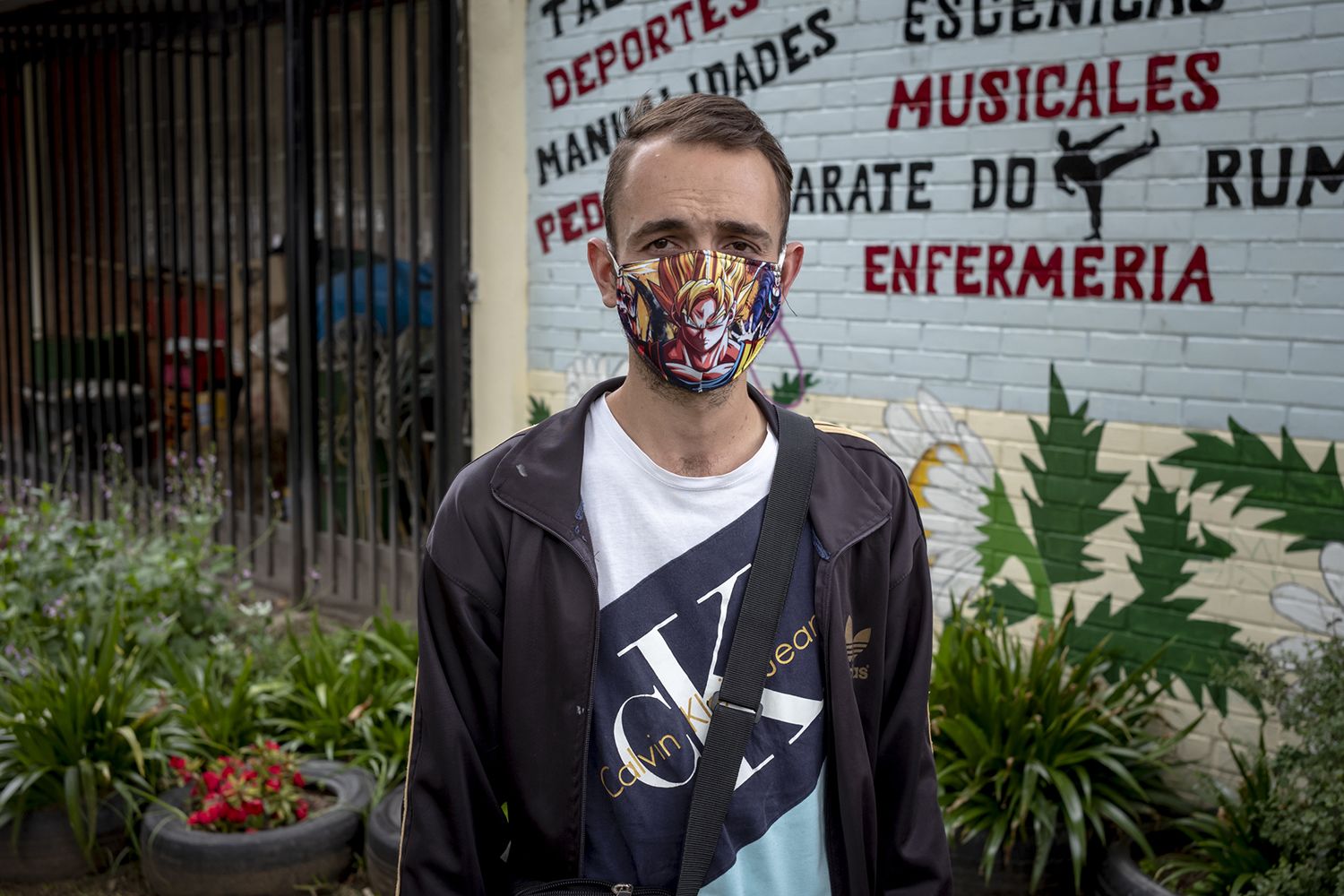
Javier David Mendez Salcedo, 28, tries to make money selling sweets on buses. Photo: Nadège Mazars/NRC
Colombia
Every day, there is a queue of people outside NRC’s office in the capital Bogotá. The vast majority are migrants who have left their home country of Venezuela to be able to feed their families back home.
“We do what we can to assist and protect those who need help,” says Dominika Arseniuk, NRC's country director in Colombia. “In Colombia, we give money to vulnerable families and members of the local community where they live.”
NRC has provided financial support to Venezuelan refugees and migrants over a period of six months. We also offer workshops to help them deal with the trauma and mental stress that many of them are struggling with.
Read more about the forgotten victims of the coronavirus crisis .

Javier David Mendez Salcedo, 28, tries to make money selling sweets on buses. Photo: Nadège Mazars/NRC
Javier David Mendez Salcedo, 28, tries to make money selling sweets on buses. Photo: Nadège Mazars/NRC


